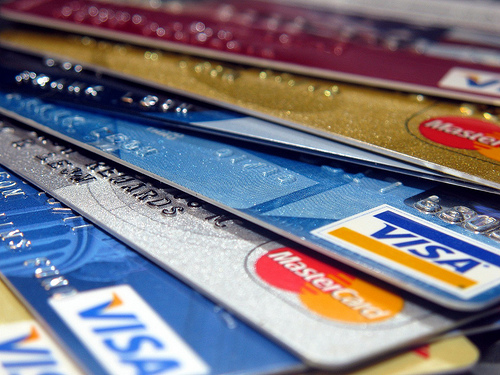Not many people are debt-free these days. You might have student loans, a mortgage, or credit card debt eating away at your finances. I’ve been working extra hard at eliminating what debt I can, and reducing balances where I’m able to. Once it’s eliminated, you can work on other financial goals, such as increasing your savings. It’s not easy, and sometimes it can feel as if it’s taking forever, but it’ll be so worth it in the end (I daydream about paying off my student loans, which are a huge burden that I’m bearing for four more years). I’ve compiled a list of tips I’ve found helpful to keep in mind to help you work towards being debt-free, check them out below!
1. Stop adding to the pile! You’ll cancel out all of your hard work if you’re consistently adding more to the debt you’re trying to pay down. Work on breaking the habits that lead you to accrue this debt in the first place. Reserve money for spending, and stick to your limit. It might help to spend using cash only, or to spend from a separate account with limited funds (i.e. move money you don’t want to spend into a savings account so you’re not tempted to dip in).
2. Use “extra” money to help with payments. Maybe you have a side job for earning extra income, or you just got a bonus at work. Use these small windfalls to help pay down your debt instead of spending it. Every little bit counts!
3. Find a payment method that works for you. There are a number of ways to pay down your debt, and it’s a personal choice for every person. It’s a good idea to begin with the debt gaining the most interest (typically credit card debt). Aim your extra funds at this balance while paying the minimum on the others to avoid paying more in the long run. Since many of the interest rates I deal with are pretty similar, I opt for the snowball method. I pay the minimum on all of my monthly payments, but I throw my extra money at the debt with the smallest balance. Once it’s paid off, I take what I was paying on that loan and apply it to the next smallest balance (on top of what I was already paying for that one) and one by one, they begin to disappear! You can also combine the two strategies, or come up with a completely different plan that suits your needs.
4. You CAN pay down your debt and save at the same time. While the ultimate goal is to be debt-free, don’t sacrifice absolutely all of your savings to get there. Giving all you have could get you in a sticky situation, should an emergency arise, and you’ll end up with more debt than you started with. Set aside a small amount of money to save while still contributing most of your funds to your outstanding balances.
5. Negotiate. Higher interest rates can make loans and other debt harder to pay off, depending on your balance. Call your credit card company and ask for an adjustment on your rate, and they might just agree! You might even be able to negotiate financial aid or a final bill, if you face financial problems from things such as medical bills.
Are you currently working your way toward a debt-free life? What are your biggest obstacles or worries? What do you do to keep yourself on the right track?

